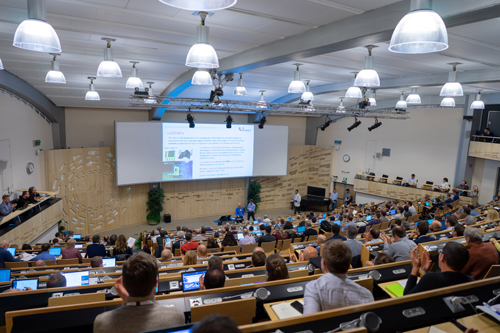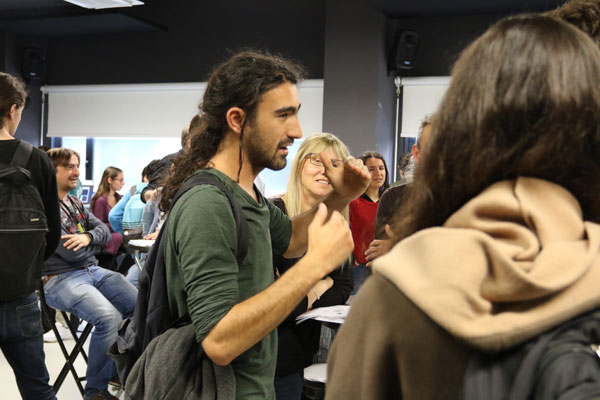 More than fifty undergraduate and master students attended yesterday’s reSearch4Talent at IBEC, the fifth time we’ve opened our doors to young scholars interested in a scientific career.
More than fifty undergraduate and master students attended yesterday’s reSearch4Talent at IBEC, the fifth time we’ve opened our doors to young scholars interested in a scientific career.
Held in the Dolors Aleu room of the Barcelona Science Park, the event started with a welcome and presentation about the institute from IBEC’s talent and education deputy and Group Leader Elena Martínez, followed by specific information about applications and admissions from Carolina Marí Head of the HR department. To finish with the presentations, Harishankar Balakrishnan PhD at IBEC, shared his experience as doctoral student and did a brief presentation of the PhD Committee, which was set up in 2013 to enable students to have a voice in the running of the institute and to organize events of their own.





 Santiago Marco, group leader of the Signal and Information Processing for Sensing Systems and Samuel Ojosnegros, Head of Bioengineering in Reproductive Health and have been selected for their research projects in the ATTRACT programme. The call received more than 1200 projects and only 170 proposals were selected.
Santiago Marco, group leader of the Signal and Information Processing for Sensing Systems and Samuel Ojosnegros, Head of Bioengineering in Reproductive Health and have been selected for their research projects in the ATTRACT programme. The call received more than 1200 projects and only 170 proposals were selected.
 More than fifty undergraduate and master students attended yesterday’s reSearch4Talent at IBEC, the fifth time we’ve opened our doors to young scholars interested in a scientific career.
More than fifty undergraduate and master students attended yesterday’s reSearch4Talent at IBEC, the fifth time we’ve opened our doors to young scholars interested in a scientific career.